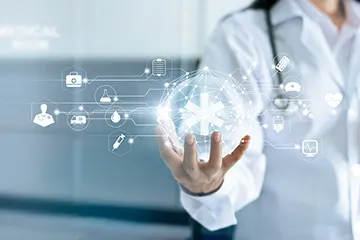Technological Questions Framing Modern Medicine

Technological updates are helping healthcare and medicine advance at a rapid pace. Seeing the profound impact on human health and wellness has been, and continues to be, inspiring. As with innovations and advances in any field, there are risks associated with rewards.
We've seen the integration and use of smart infusion pumps rise in hospitals and will have a projected value of more than $5 billion by 2024. Most of the impacts smart iv pumps have made have to do with better patient care. However, with the speed of technological advances having more of a hand in human healthcare, there come questions that we don't yet have answers to. Known and unknown, it's important to know where technologies embedded in the medical field stand.
Let's get rid of errors
Take, for instance, Alaris IV pumps -- the hardware has embedded software connected to servers running in the background, crawling through medical data sets to assure accurate medicine dosages. Where, in the past, infusion pumps had to be programmed by medical professionals capable of erroneous programming, now there's a safety net. Electronic medical records, patient care histories, and drug mixture precautions are all things connected to Alaris IV pumps. This data leaves no room for human error, making treatment that much more safe, consistent, and effective.
IoT and we?
The Internet of Things (IoT) in the medical industry is quickly becoming widespread. These devices connected to servers are becoming more interconnected with each other. An Alaris IV pump can share dosage data and medical records from its server with other medical electronics, a network which is ever expanding. While medical devices only stand to get smarter with interconnectivity and real-time data sharing, there's the concern of security. Laws protecting the personal information of patients haven't quite caught up with technologies. Where, with whom, and when is patient data to be shared? How many devices have access? How secure is the network? It's difficult to factor in data security risks, patient confidentiality, with technologies so rapidly changing.
While the world of medicine gets stronger through personnel and technology, we're forced to ask the challenging questions. However, regardless of the difficult questions, the future of medicine is smarter, brighter, and healthier.
